The clothing and textiles industry accounts for more greenhouse gas emissions than international aviation and shipping combined. Rethinking the amount of clothes we buy and refreshing our wardrobes with only second-hand pieces challenges fast-fashion culture, saves money, and encourages creativity.
Throughout April, our fashion challenge competition invited staff and students to share their favourite secondhand, upcycled or repaired item. Congratulations to Chaeyeon Lim, Vicky Carliell and Caroline Kirk who have each won a £25 Love Bristol gift card for sharing snaps their fabulous fashion-forward pieces. Here are the winning entries, plus a few of our other top picks!

“Here’s a few photos of me in my favourite pre-loved charity shop purchase – my wedding dress! All 5 of my bridesmaid dresses were also second-hand (mainly from the Tenovus charity shop on Gloucester road). It was important to me to make my wedding as sustainable as possible, and I didn’t want to spend a fortune on a dress that would only be worn once.” Vicky Carliell
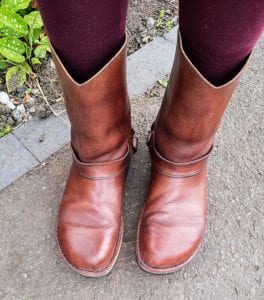
“A pair of handmade leather boots I bought pre-loved on Vinted were in a sorry state, with the sole nearly worn through, the uppers coming away from the soles, and the leather looking very faded and worn. As the boots are handmade, they can be resoled and repaired so I sent the boots off to the maker (Conker). I’ve since given the leather a clean with saddle soap, restored the colour with brown boot polish, and nourished the leather with Dr. Martens Wonder Balsam!” Caroline Kirk

“I’m wearing a necklace I made and a vest I exchanged with my muffler at a swap shop organised by Bristol SU. Selfie taken in front of Forsythia on a priory road. Being sustainable in spring, being sensible and stylish!” Chaeyeon Lim
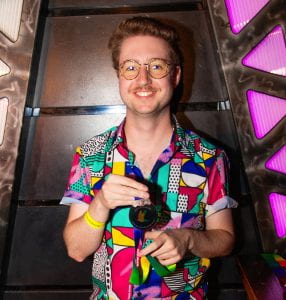
“I’m wearing a second hand shirt from Depop, which I wore as part of the medal ceremony for my badminton club’s annual tournament. I was giving medals out to winners and the photo is me showing the medals to the audience.” Sam Cook
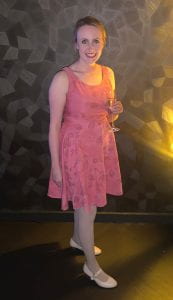
“Here I am in a dress that I made from an old duvet cover that had a big rip in it.” Rachael Carey
Rachael also shared a picture of the original duvet cover before she dyed it pink!

“I bought this dress on Vinted and the denim was too pale for my skin tone. It’s 100% cotton so I decided to dye it using an emerald green Dylon dye pod, I am now much happier with the colour!” Josie Maskell
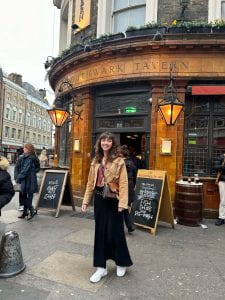
“I found the dress (French Connection) in a charity shop a few years ago on Gloucester Rd and have worn it so many times in different ways. The leather jacket is also vintage French Connection from the Clothing Xchange in Broadmead and the vintage leather bag is from another charity shop by the Bear Pit.” Claudia Dupe
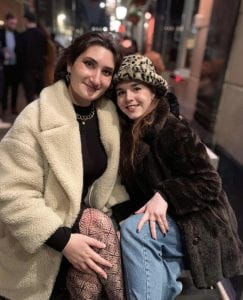
“I got this faux fur coat and leopard print hat from a vintage market in Camden (I’m on the right). They’re really warm and both a great addition to any outfit!” Imogen Stone
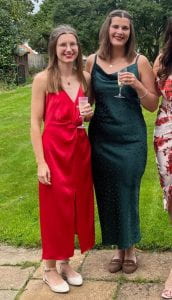
“I was in a charity shop looking for work wear and stumbled across this gem of a dress for £5 (I’m in the red). I’ve worn it to multiple weddings because I’m never worried about wearing something twice! Not featured also the two very stylish jumpsuits I bought for work in that trip – long live the Bedminster charity shop scene!” Emily Wride
Find out more and sign up to the ‘Fashion’ challenge here.

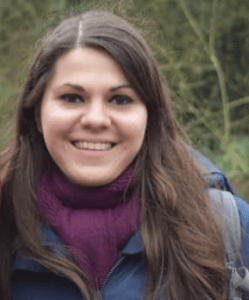
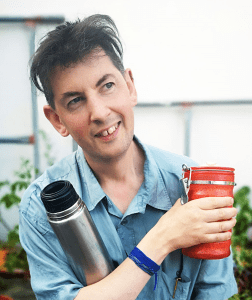 Paddy Uglow, Digital Learning Materials Assistant Developer, Digital Education Office
Paddy Uglow, Digital Learning Materials Assistant Developer, Digital Education Office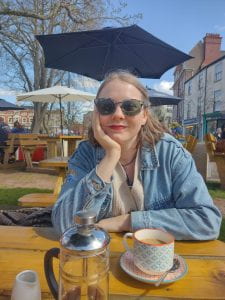
 Dr. Sai Priya Munagala, Research Associate
Dr. Sai Priya Munagala, Research Associate